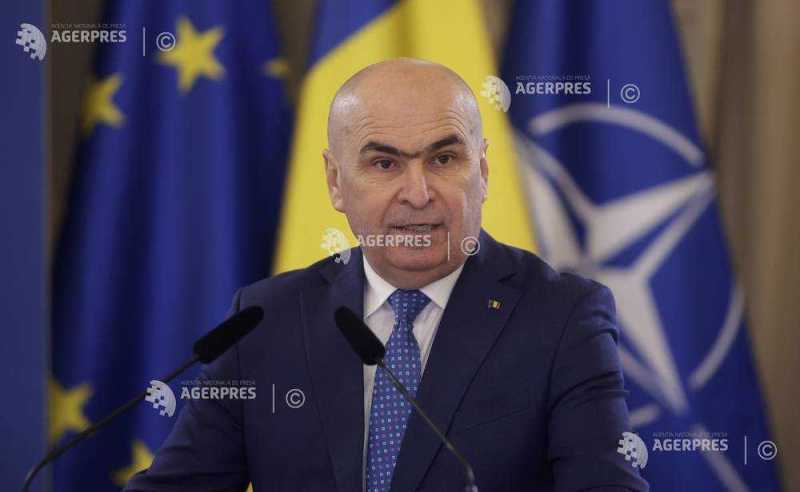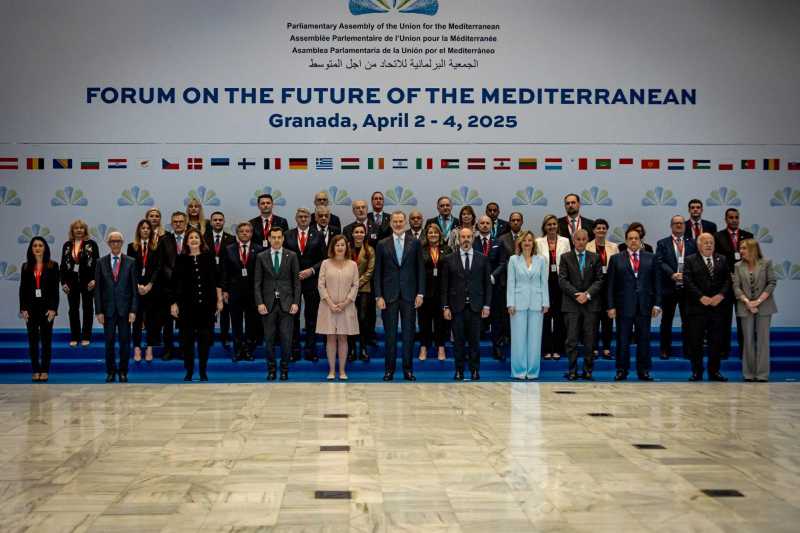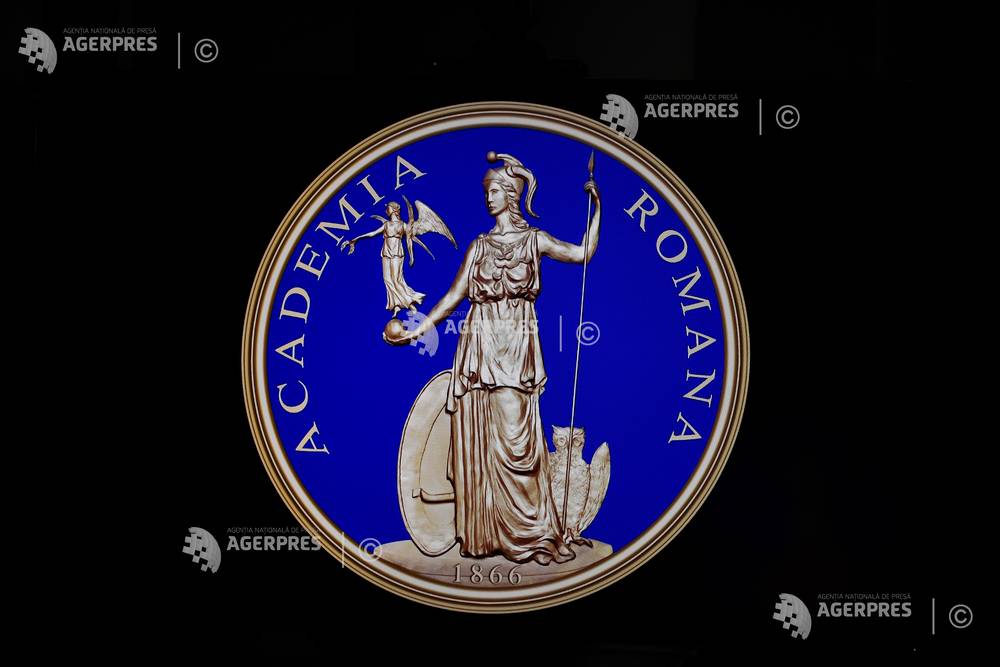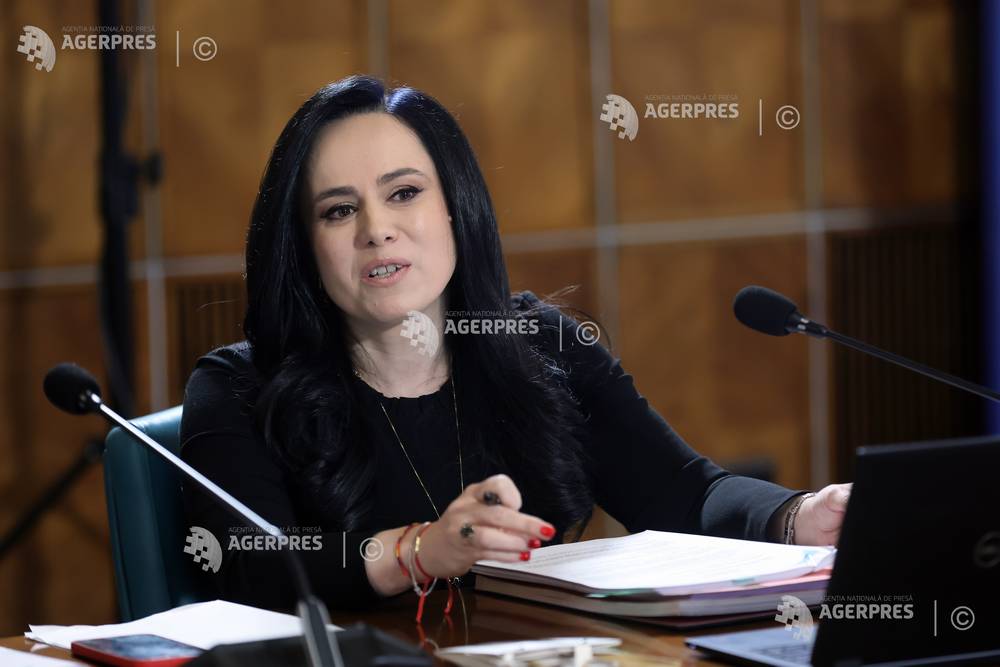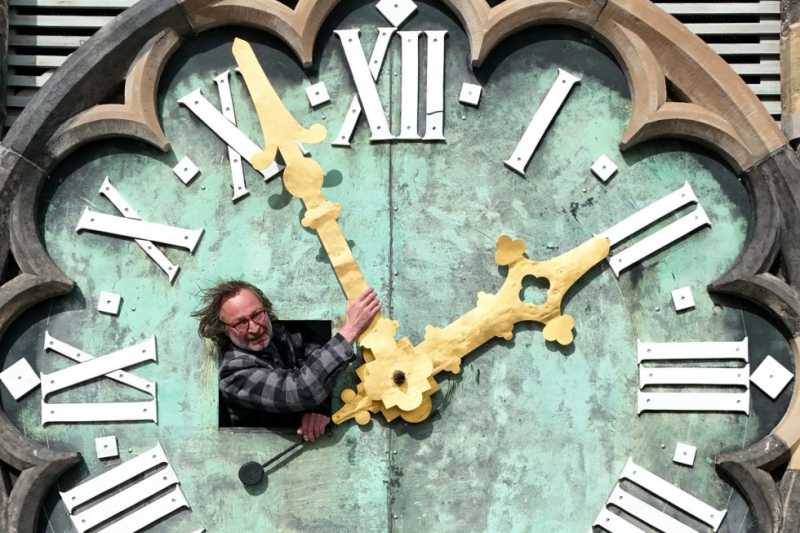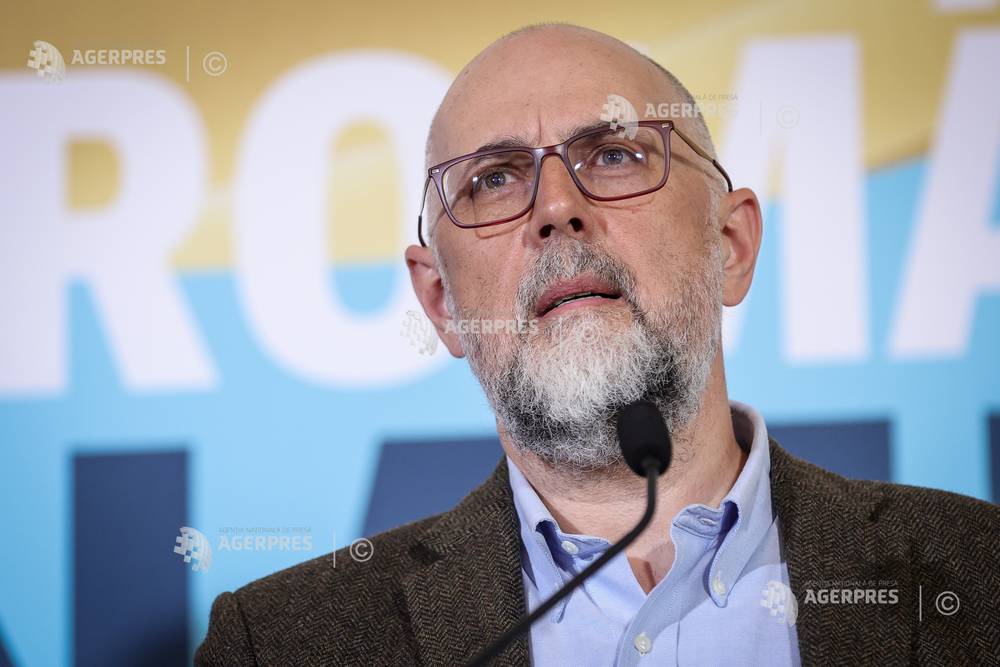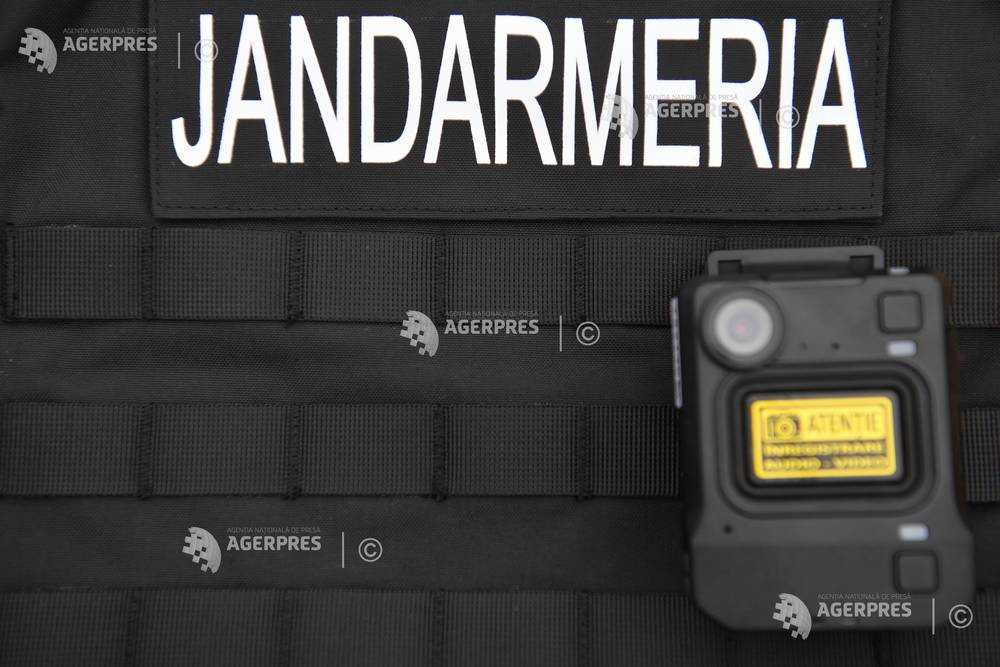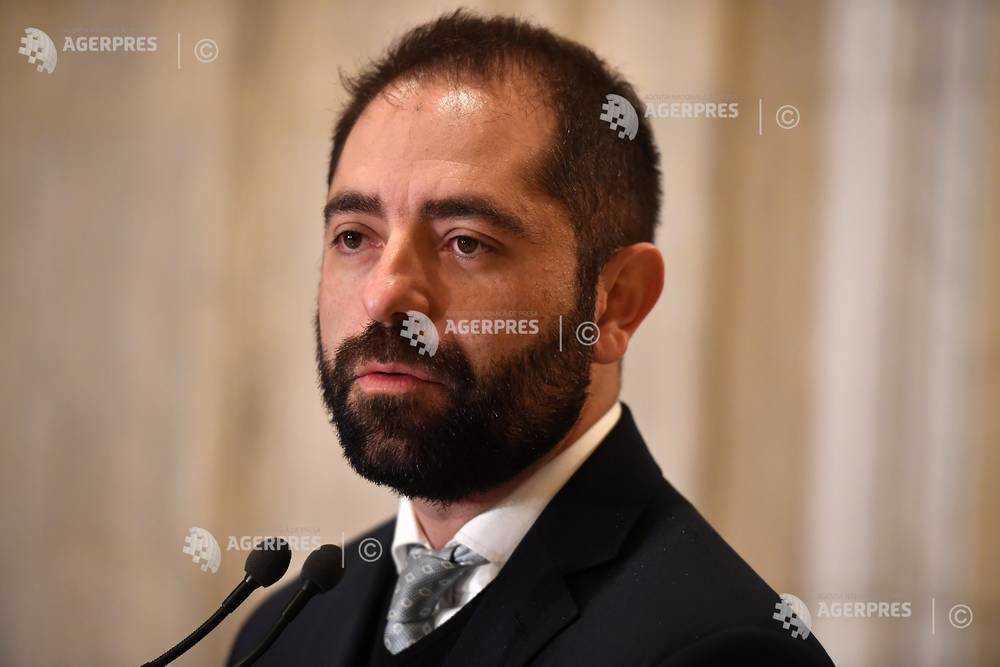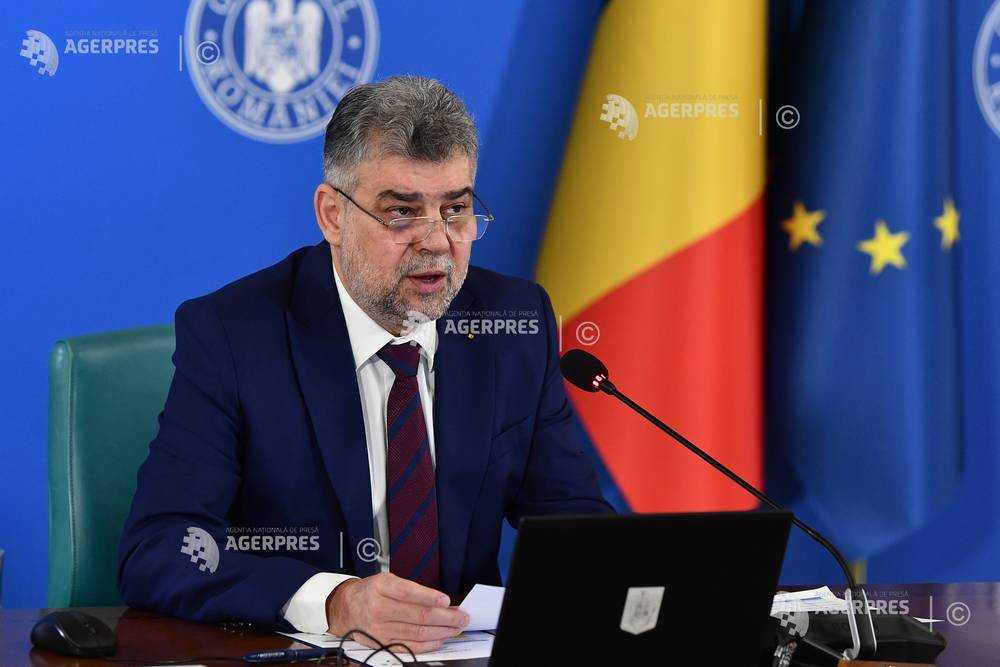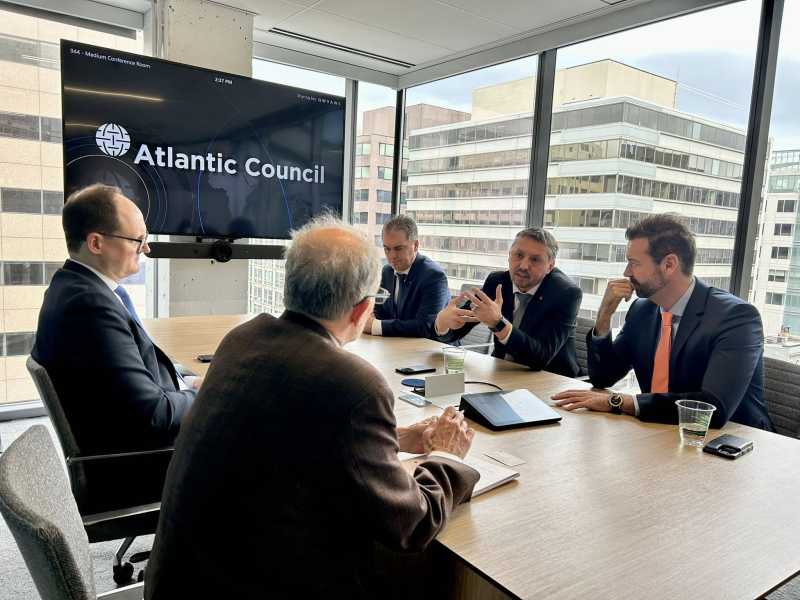Germany votes: Will Europe's economic locomotive finally gather speed again? (enr)

Brussels, Jan 23 /Agerpres/ - Germany and France have long been regarded as the twin engines of Europe. While France has to deal with its own slate of problems, in Germany many important issues are on the back burner while the country waits for a new government. Can hard-nosed conservative Friedrich Merz be the fresh pair of hands the country needs?
One month from now on February 23 Germany is electing a new parliament. While the European Union's largest economy is busy with campaigning there is not much bandwidth for pressing European topics. Depending on the outcome of the polls, difficult and drawn-out coalition talks might follow - leading to further paralysis and German distraction from EU affairs.
Clashes between Chancellor Olaf Scholz and his coalition partners over how to get the economy back on its feet were at the heart of the government's collapse in November. It consisted of the Social Democrats (SPD), the Greens and the liberal Free Democrats (FDP).
It's the economy, Olaf
Germany's economy shrank for a second straight year in 2024 according to official German figures, with little hope of a speedy recovery as Europe's traditional powerhouse is also mired in political crisis. Gross domestic product in Europe's largest economy fell 0.2 percent last year, according to preliminary figures from federal statistics agency Destatis, after a 0.3 percent contraction in 2023.
Germany finds itself in the unusual position of being at the tail end in European terms of growth - the European Commission has predicted the overall Eurozone economy to have grown by 0.8 percent in 2024, well above Germany's result.
Germany's structural problems are manifold and affect its economic position in the EU.
Wollmershäuser, head of forecasts at the German economic think tank Ifo, summed up the situation in mid-January, listing the challenges ahead.
Who will rule in Germany?
After February 23, Germany will most likely be ruled by a coalition government again, yet a return of the so-called traffic-light coalition of SPD, FDP and Greens is unlikely. Rebooting the German economy will be one of the main tasks for the new government, which - judging from current polling - could be led by the conservative CDU/CSU party bloc.
In polls conducted five weeks ahead of the elections the picture is pretty clear: The Christian Democratic Union (CDU) and their Bavarian sister party CSU lead the opinion polls of the three main pollsters with a range from 29 to 31 percent, followed by the far-right Alternative for Germany (AfD) with 20 to 21 percent.
Scholz's SPD is only the third-strongest party according to these polls with around 16 to 18 percent, the Greens hold at between 13 and 14 percent. The FDP currently polls around 4 to 5 percent - it may not surpass the 5-percent-threshold to make it into the Bundestag. The leftist party Die Linke (3 to 4 percent) and the new leftist-conservative Bündnis Sahra Wagenknecht (4 to 7 percent) may also not clear that hurdle.
If asked whom they want to be their chancellor, German voters equally prefer the CDU/CSU candidate Friedrich Merz and the Green's Robert Habeck (both at 23 percent) over Scholz (17 percent). The German chancellor is not directly elected.
A coalition between the CDU/CSU and SPD is the most likely scenario. So far, all parties have ruled out forming a government with the AfD.
What is at stake in Germany and Europe?
Whoever takes over in Berlin will have a massive to-do list ahead of them. Apart from fixing the economy and the country's crumbling infrastructure, Germans are clamouring for lower energy costs and the county needs to further reduce its dependence on fossil fuels. One question is whether the new government will subsidise the construction of gas-fuelled power stations, which should serve as back-ups in times when wind and solar energy generation is insufficient.
Prospective chancellor Merz is expected to change course on several key policy topics - environmentalists fear steps backward. Merz for example is sceptical about Germany's energy transition to 'green' steel and his party has already promised to re-introduce fuel subsidies for farmers. But while he recently said he 'regretted' the phase-out of nuclear power, it was probably too late now for a reversal. Merz stressed that he remained committed to Germany's path towards energy transition away from fossil fuels.
What does Merz want?
The conservative party leader regards himself as better placed to enter negotiations with US President Donald Trump than Scholz, who has been more critical of the new US administration - in particular regarding Trump ally Elon Musk's recent interventions in the German election campaign.
Merz's perceived better rapport with Trump could become essential if the US president fulfills his promise of implementing new tariffs. Germany fears it could be on the front line in a new EU-US trade war, which would hit Germany's export-oriented economy hard.
At a meeting of the European People's Party (EPP) in Berlin on January 18 Merz also said that in view of Trump's inauguration the following Monday he added that this event would accelerate 'our efforts to join forces and act together'.
Trump will also expect Germany - and the EU - to position themselves more clearly against China. The new leaders in Berlin will have to figure out how to deal with this and other demands from Washington.
Merz stressed that Germany must take on a leadership role with others in Europe. In his opinion it would be key to pass the Mercosur trade agreement with several South American states, he said on Tuesday.
Also European governments should improve their cooperation in the acquisition of military equipment. 'There are many opportunities for the Europeans, which we do not take advantage of at the moment', Merz added. Getting Germany's armed forces into shape after years of cost-cutting is another task for the new government.
While Scholz's government had been internally split on how much support to give to Ukraine, Merz remains vocal in his support for increased military support for the embattled country.
He accused Scholz of electioneering last week over the latter's refusal to sign off on further arms deliveries to Ukraine worth around 3 billion Euros. Merz - and also Scholz's former coalition partners - believe financing that aid is possible as an 'extraordinary expenditure' without taking on new debt.
Scholz however demands additional borrowing, which would affect the so-called debt brake - Germany's constitutional restrictions on ordinary borrowing. It is now expected that Ukraine will have to wait for a decision until after the February 23 polls.
Merz is also pursuing a harder line on migration. At the EPP-meeting he pointed out that a series of new initiatives by other EU member states existed to improve European rules on migration. 'We need stricter rules to rein in irregular migration to Europe,' he said. Italy and the Netherlands had made great progress on that issue, he added. 'Germany, unfortunately only [makes] smaller steps.'
Apart from the big topics such as migration and defence, other EU members look to Germany for specific aspects of cooperation:
In Sweden for example, the conservative government is hoping for better cooperation on energy issues with Germany. Energy minister Ebba Busch wants Germany to divide the country into electricity price areas, which also would have an effect on the prices in Sweden. At the same time, Busch is very critical towards the German view on nuclear energy.
'It's one thing that Germany doesn't want nuclear energy for themselves, but a different thing when they are stopping others from using funds for it. It's hypocrisy,' Busch fumed in Brussels in December.
In Europe, Sweden is relying heavily on support from Germany when it comes to being frugal. The government and the opposition are united in saying no to any plans for common European borrowing and want to keep the European budget as small as possible. But the pressure is hard on Sweden to follow the change in Finland and Denmark, where other traditionally frugal governments have changed their positions.
The content of this article is based on reporting by AFP, ANSA, dpa, EFE, TT as part of the European Newsroom (enr) project. AGERPRES (editor: Mariana Ionescu)
The content of the www.agerpres.ro website has the exclusive purpose of public informing.
All the information published on this website by AGERPRES is protected by relevant legal dispositions.
It is forbidden to copy, reproduce, recompile, decompile, distribute, publish, display, modify, create derived components or products or full services, as well as any exploitation of the site's content.
Details in the section Terms of Use. If you are interested in picking up AGERPRES news items, please contact the Marketing Department – [email protected].
The use of the Comments section entails your obligation to respect the AGERPRES terms and conditions in regards to the publishing of comments on the www.agerpres.ro.
Other news in category
Interim President Bolojan: Romania remains firmly committed to values and principles that underpin NATO
Interim President Ilie Bolojan on Friday sent a message on 76 years since the creation of the North Atlantic Treaty Organization (NATO), saying that Romania stays firmly committed to the values and principles that underpin the Alliance. 'Today, we mark 76 years since the founding of NATO, the strongest political-military alliance in history. Romania remain
Senate's Abrudean at Forum on Future of Mediterranean: Investing in people is for peace, sustainability, development
Bucharest, April 4 /Agerpres/ - Investing in people, through accessible, inclusive and quality education, is a long-term investment in peace, sustainability and development, highlighted the interim president of the Senate, Mircea Abrudean, at the Forum on the Future of the Mediterranean, in Granada. 'In the face of multiple crises, we must continue to join
Romanian Academy celebrates 159 years of existence
Bucharest, April 4 /Agerpres/ - The Romanian Academy celebrated 159 years since its founding with a festive session on Friday. During the event, the president of the Academy, Ioan-Aurel Pop, emphasised that the institution's projects are integral to the major endeavors of Romania's national culture. He remarked that only the ignorant or malicious indiv
Cheile Bicazului-Hasmas National Park cameras provide valuable information on wildlife
Since 2022, twenty cameras have been installed in the Cheile Bicazului-Hasmas National Park to monitor wildlife as part of a European-funded project, park director Hegyi Barna told AGERPRES. Half of these cameras are capable of sending images via email once captured. These cameras provide valuable information about animal behaviour, the number of animals in th
Labour minister Bucura-Oprescu: Joining the OECD represents a great opportunity for Romania to speed up reforms
Joining the Organization for Economic Cooperation and Development (OECD) represents an opportunity for Romania to speed up the implementation of ongoing reforms, but also a commitment to modernisation, alignment with international standards, says the minister of labour, family, youth and social solidarity, Simona Bucura Oprescu. According to a post on Facebook
PM Ciolacu: Romania is going to receive a new model of the PATRIOT system from the U.S.
Romania is going to receive a new model of the PATRIOT system from the United States, Prime Minister Marcel Ciolacu said on Friday, pointing out that the purchase contract has been signed and the payment has already been made. The announcement was made at the end of a visit to the construction site of the Large Burns Centre at the 'Pius Branzeu' County
Time to say goodbye: Will the EU ever abandon Daylight Saving Time? (enr)
Brussels, April 4 /Agerpres/ - A move to end the twice-yearly clock change in the EU has been on the back burner for years. The Polish Presidency of the Council of the European Union has been pushing against the Brussels inertia to get that ball rolling again. Help might come from an unexpected corner: Trump and Musk. Like clockwork, every year in late March t
Romania's membership of the North Atlantic Alliance, strongest guarantee of security (PM Ciolacu)
Romania's membership of the North Atlantic Alliance is the strongest guarantee of security, Prime Minister Marcel Ciolacu said on Friday in a message marking NATO Day and the 21st anniversary of Romania's accession to the organization. 'The most powerful political-military alliance in the world today celebrates 76 years since the signing of its fou
UDMR's Kelemen Hunor on tariffs imposed by the USA: We need to stay calm, we need to discuss, negotiate
The European Union and Romania must deal with the situation created by the introduction of the new tariffs by the USA calmly, we need to discuss and negotiate, believes the president of the UDMR (Democratic Union of Hungarians of Romania), Kelemen Hunor. Asked on Europa FM radio station how should Romania manage from a political and diplomatic point of view &#
Civic organisations ask authorities, parliamentarians and presidential candidates firm pro-European stance
The civic organisations that launched 'Manifest pentru Europa' ('Manifesto for Europe') in March have sent a document to authorities, parliamentarians and presidential candidates, requesting a firm pro-European stance and the commitment to concrete measures to protect Romania's Euro-Atlantic future. 'The 29 civic organisations that laun
Gendarmerie Day/IntMin Predoiu: I am proud of the way you managed tense moments
Minister of interior Catalin Predoiu on Thursday voiced his appreciation for the activity of the Gendarmerie and the way in which these institutions know hot to manage tense moments that require the involvement of the law enforcement. He participated in the 175th anniversary since the establishment of the Romanian Gendarmerie. 'I was proud t
Burnete (Concordia): U.S. tarrifs impact to be seen in Romania in automotive industry, furniture or steel products
Romania's direct exports to the United States represent approximately 2% of the country's total exports, however, the indirect impact of the new tariffs imposed by the U.S. may be felt in sectors such as the automotive industry, furniture and wood products, steel and iron goods, rubber and rubber products, industrial equipment, and the food industry, which are part o
PM Ciolacu: We will protect Romanian companies from effects of trade war between America and Europe
Prime Minister Marcel Ciolacu on Thursday announced support measures for all industries affected by 'the effects of the new trade war of tariffs between America and Europe,' mentioning that there is trust in Romania from investors. 'We will protect Romanian companies with all available resources from the effects of the new trade war of customs tari
Education Minister David, discussions on research-innovation, transatlantic relations, competitiveness, on visit to the United States
Minister of Education,Daniel David, on a visit to the United States, had meetings with representatives of several organizations and institutions, including the International Monetary Fund, the Congressional Office for International Leadership (COIL), the Atlantic Council, as well as with representatives of the Romanian diaspora. According to the ministry's
PresidentialElection2025/Election campaign to start with 11 candidates running for president
The election campaign for the presidential election starts on Friday at 00:00 and ends May 3 at 7:00. For 30 days, the eleven candidates registered in the race for the Cotroceni Presidential Palace will try to convince the voters to vote for them on May 4. During the election campaign, only the following types of propaganda materials are allowed


